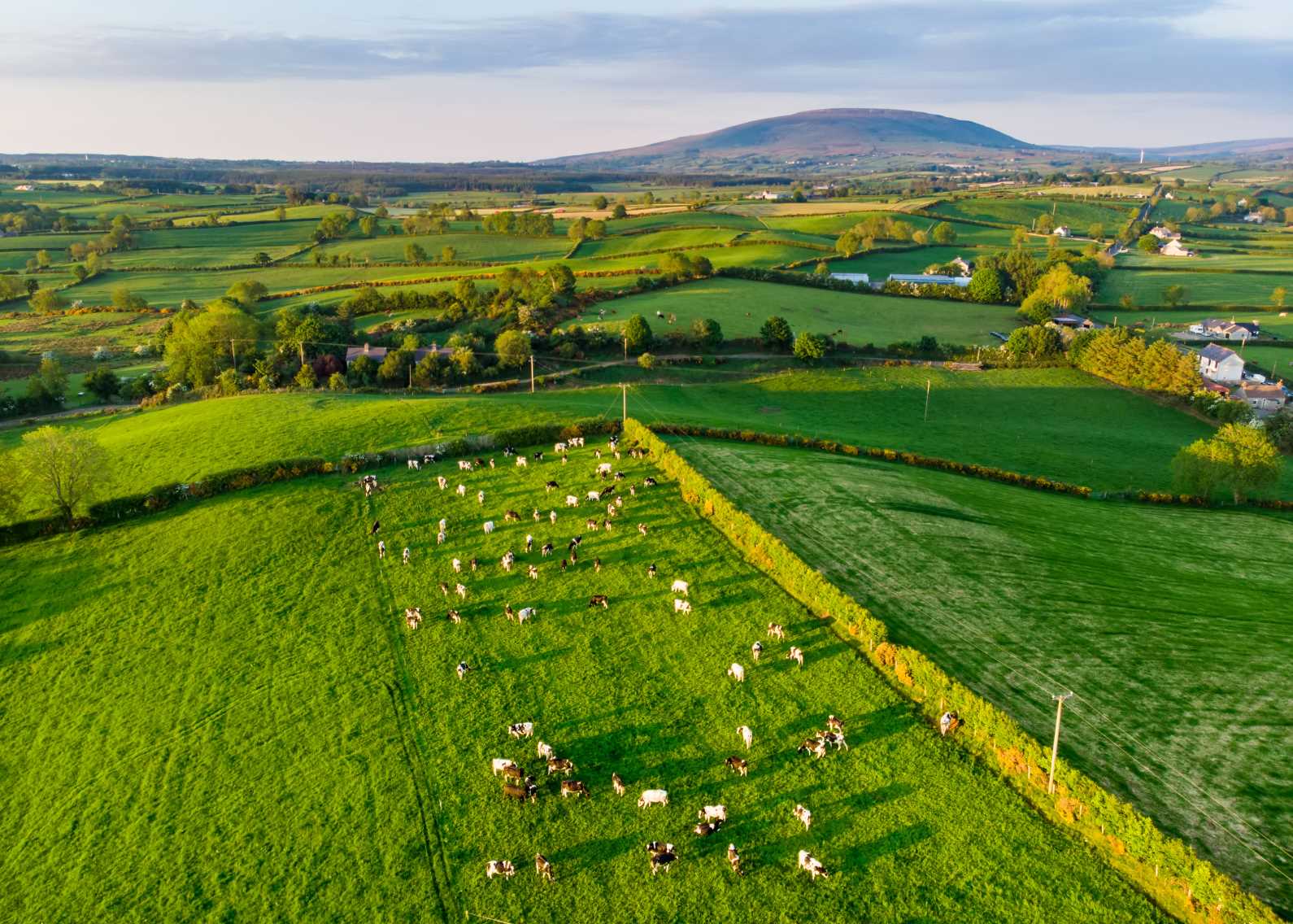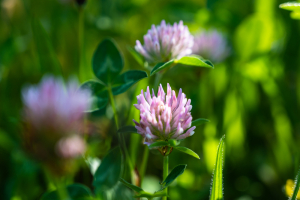Blog
-
-
Posted: April 19, 2024Read more
From hard-wearing to deluxe to shaded areas, we have the perfect lawn seed for every corner of your garden. Our extensive range ensures that no matter the scenario, we've got you covered.
-
Posted: January 29, 2024Read more
- Nitrogen Fixation: Red clover is a leguminous plant, capable of forming a symbiotic relationship with nitrogen-fixing bacteria. This process converts atmospheric nitrogen into a form that plants can use, thereby enriching the soil with nitrogen. This makes red clover an excellent green manure or cover crop.
- Nutrient Recycling: The nitrogen fixed by red clover becomes available to other plants when the clover is incorporated into the soil or left as mulch. This helps improve overall soil fertility.
- The dense root system of red clover helps bind soil particles together, reducing the risk of erosion. This is particularly beneficial on sloping or vulnerable soils.
- Red clover can compete with and suppress weed growth. Its vigorous growth and dense foliage shade out weeds, reducing the need for herbicides and promoting a healthier, weed-free environment.
- Red clover attracts pollinators such as bees with its nectar-rich flowers. Planting red clover can contribute to the overall biodiversity of an area by supporting pollinating insects.
- Red clover is a nutritious forage crop for livestock. It is often included in pasture mixes as it provides a good source of protein for grazing animals.
- Introducing red clover into crop rotation systems can break disease and pest cycles, as different crops have varying susceptibility to specific issues. This can contribute to sustainable and environmentally friendly agriculture practices.
Buy Red Clover Silage Mixture
-
Posted: July 21, 2021Read more
Rolling green hills, beautiful gardens and impressive scenery are all major parts of Ireland’s stunning and aesthetic landscape. As people with a real pride of place and love of our outdoor spaces, it is no wonder that most of the country takes to their gardens, golf courses and parks for their peace of mind. DIY projects have become more than just a hobby recently with many revamping the whole garden. When it comes to installing a new garden, the decision often comes down to seeding or laying grass rolls with benefits to both.
In fact whether it is a garden you are preparing, a GAA pitch or even a golf course, this choice remains the same and knowing the different factors that should influence your decision will help. Growing grass seed from scratch has always been the tradition in Ireland but laying out grass sod has emerged as a real alternative with its own set of benefits.
It may not be the most publicized debate of our time but for those professional or amateur landscapers among us, there are a number of features to consider.
What is your project?
Naturally, the project you are embarking on will make a difference to the choice you make. Both sod and seed are very versatile and excel in different areas.Grass seed has so many applications and is something we are all very familiar with. Most will choose seed especially for bigger fields and gardens. The cost and installation make it a very favourable option for these projects as it reduces the overall spend and intensive labour. It is equally adept in home gardens or other pitches and parks where time is less of a factor.
Sod or grass rolls have been around for quite some time and offer a great alternative to seeds. Sod is a great choice for home gardens, golf courses, GAA pitches and parks as it can be laid out just as it might look in the pictures. The turn-around time for a grass roll project is exceptional and if you are short on time, sod may b
Posted: May 29, 2021Read moreHarvesting season is just around the corner and the talk on most farmers’ lips is all about grass. The weather hasn’t been kind and means dairy, beef and sheep farmers are potentially looking at a deficit this year. However, multi-species grass seeds are providing an alternative to disappointing yields.
Multi-species swards are making a lot of noise in the farming community. They need less resources and are much better for the livestock. The previous misconceptions about them only being suitable for drier climates have been put to bed by Teagasc.
If multi-species are the way forward, it’s time for farmers, merchants, agricultural advisors and policy makers to start paying more attention.
What are the benefits of a multi-species grass sward?
Multi-species grass has been an area of huge focus in many of the latest Teagasc studies. They are doing their best to give farmers every advantage in an increasingly restricted environment. As farmers continue to grapple with the changing climate and customer demands, multi-species grass is providing serious benefits.1. Reduced Need for Inorganic Nitrogen
One of the crowning improvements that multi-species grass holds over perennial ryegrass monocultures is its ability to produce more with less.Teagasc research found that multi-species can maintain a high yield with hugely reduced inorganic nitrogen fertiliser. While it takes some grass swards 300kg+, a well-maintained multi-series sward can get by without any because many of the legumes provide fertiliser naturally. With farmers at the mercy of the market when it comes to fertiliser prices, this is welcome news.
Brexit and a higher nitrogen demand than usual coming from the US amidst the reduction in supply are causing prices to fluctuate massively. When this is added to the chastening EU regulations that are not about to change, the option of a reduced reliance on N is increasingly attractive.
Back to Top










